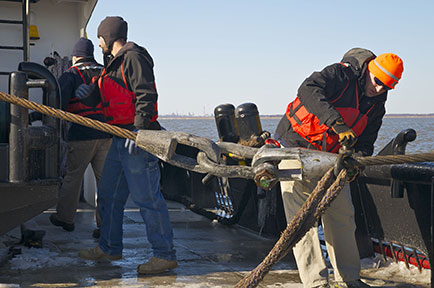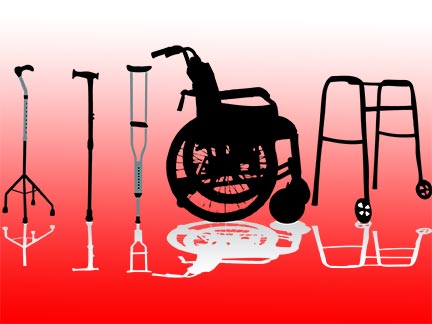Maritime Workers
Work at sea can be dangerous and exhausting, causing many seamen to be injured. The Jones Act is a law passed in 1920 that protects workers who are injured on seagoing vessels by guaranteeing them or their families insurance coverage if negligence by the owner or a fellow seaman can be proven.
The Jones Act applies to almost all vessels in navigation or capable of navigation. The law applies to vessels on inland navigable waters as well as those at sea. It requires that cargo moving between U.S. ports be owned, built and crewed by United States workers. They must fly the American flag. However, dredges, scows, and barges are also considered vessels for purposes of the Jones Act. Likewise a fish processing vessel towed from location to location would qualify as a vessel. Vessels that are temporarily moored, such as a dredge, also qualify as vessels under the Jones Act.
What Vessels Do Not Qualify Under the Jones Act.
Vessels that are out of the water, or no longer capable of navigation, do not qualify as vessels under the Jones Act. A vessel that is permanently affixed to shore and is no longer in navigation does not a vessel under the Jones Act.
To be eligible for coverage by the Jones act, a worker must spend 30 percent of his time working on a vessel of navigable waters. In addition, the vessel must not have been removed from navigation.

Partial List of Jones Act Seamen
Taking into account the preceding requirements, the Jones Act covers but is not limited to the following types of merchant seamen:
- cargo loaders
- cooks
- cruise ship employees
- deckhands
- divers
- dredge, oil rig and tugboat operators
- electricians
- fishermen
- machinists
- officers
- pipe fitters
- plumbers
- shipbuilders
- welders

Potential Injuries
The hazardous type of work on a seagoing vessel makes seamen especially vulnerable to injury. Heavy machinery, the possibility of falling overboard and drowning, fires and explosions, are only a few of the threats a seaman faces daily.
Additional Sources of Information Regarding Severe Maritime Injuries
Sensory and Motor Recovery After the Repair of Upper Limb Peripheral Nerve Injuries: Peripheral nerve injuries may have important effects on a patient's life. When upper limb motor and sensory function are altered, the patient's return to work may be jeopardized.
Burn Rehabilitation Burn rehabilitation is an undeniably difficult and time-consuming effort. Depending on the patient's injury, stage of treatment, and age, the treatment goals and strategies will vary.
NINDS Spinal Cord Injury Information Page A spinal cord injury usually begins with a sudden, traumatic blow to the spine that fractures or dislocates vertebrae. Some injuries will allow almost complete recovery. Others will result in complete paralysis.
Traumatic Brain Injury TBI (Traumatic brain injury) is a complex injury with a broad spectrum of symptoms and disabilities. The impact on the patient and his or her family can be devastating.Traumaticbraininjury.com aims to ease the transition from shock and despair at the time of a brain injury to coping and problem solving.
Seeking Compensation for Offshore Injuries
If the injury of you or your loved one can be proven to be the fault of the vessel’s owner or another worker, it is important to find out if you qualify for compensation. The owner is bound by law to keep the vessel seaworthy and to maintain a safe environment for his/her employees.
Maritime law is exceedingly complex. Because of the difficulty of applying these laws, it is important to speak with an experienced maritime lawyer who is highly experienced and familiar with the laws. If you or someone you love was injured while working at sea, our maritime lawyers can help you seek the compensation you need to recover and move forward with your life.
To schedule a free case review, contact us today by calling (800) 773-6770 or submitting the Free Case Evaluation Form above.
Additional Sources of Information Regarding Maritime Law and the Jones Act
Stewart v. Dutra In 2005 the Supreme Court of the United States issued an opinion defining vessels with their ruling in the Jones Act case of Willard Stewart, a marine engineer, was seriously injured while working on the dredge, Super Scoop, during a Boston harbor dredging project.
Who Qualifies as a "Seaman" Under the Jones Act: A seaman is a US citizen who spends a significant amount of his/her time working as a crewmember or a captain on a US flagged vessel that is considered “in navigation” within the coastal waters and inland waterways of the US.





